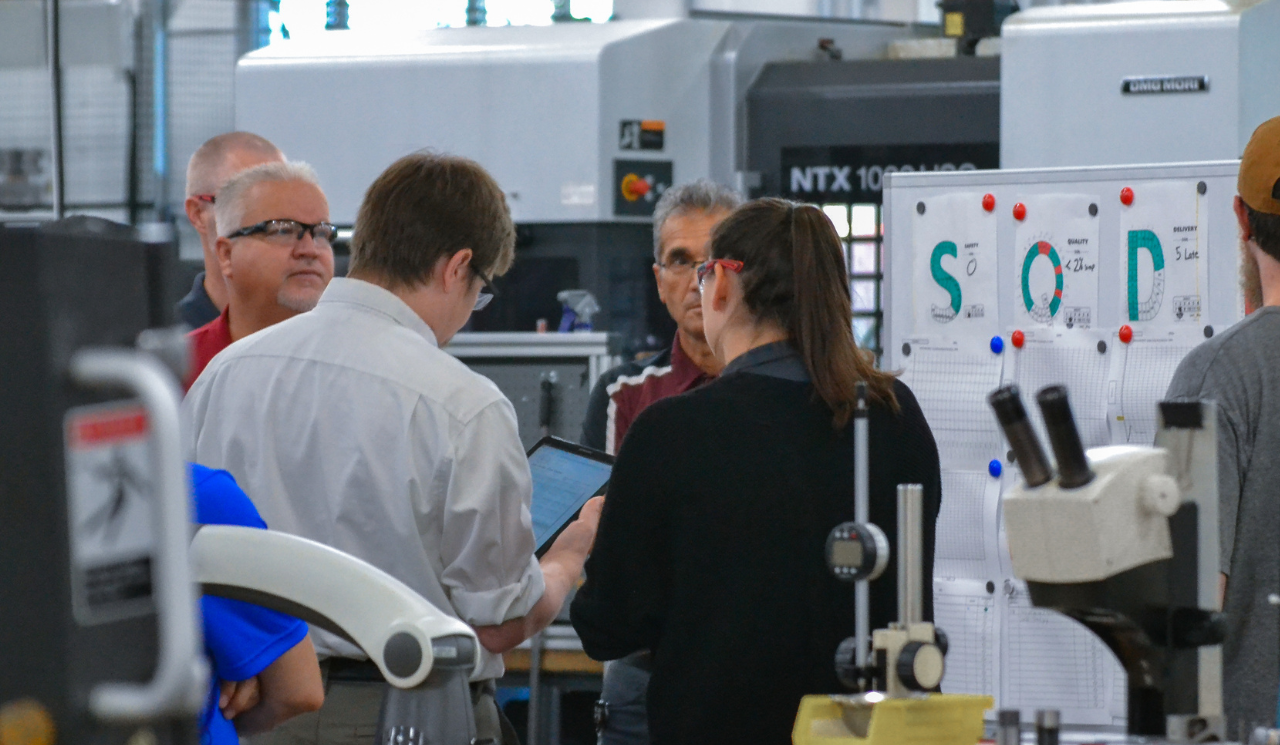The OEM-supplier relationship is typically seen as a transactional one, and while many still function in that regard, there is much to be gained from thinking about the OEM-supplier relationship as a business partnership.
From staying compliant to navigating production volatility, the working relationship between OEMs and suppliers matters. Not only does it matter, but when done well, the quality of your supplier relations can give you a critical, competitive advantage.
Moving the conversation from price to value, and from transactional to relational, results in mutually beneficial partnerships that drive collaboration and enable a supplier to better anticipate an OEM’s needs.
OEMs with collaborative supplier relationships can typically secure more competitive supplier pricing. Additionally, collaborative relationships between OEMs and suppliers benefit from non-price attributes, such as production schedule optimization and expedited issue resolution, that go far beyond just the cost of your components.
Identify Suppliers with Attractive Non-Price Attributes
Cost, capabilities, capacity, and compliance – these are the main factors that drive the supplier selection process. Obviously, they are essential criteria to consider when building out your supply chain, but they should also be weighed against non-price attributes.
Non-price attributes, like the ones listed below, can be used to measure the OEM-supplier working relationship’s effectiveness.
- Production schedule optimization and inventory forecasting
- Proactive risk mitigation and time to issue resolution between OEM and supplier
- Timely and effective communication
- Ongoing collaboration between design, manufacturing, and quality engineers
- Aligning the engineering, production scheduling, procurement, and quality functions
These non-price attributes can improve what Plante Moran calls “purchasing effectiveness,” and result in better quality, improved lead times, lower costs, and reduced production volatility.
Value over Cost
While cost is typically the prioritized, or even the sole, determining factor in the supplier selection process, it is crucial to recognize that non-price attributes contribute to overall value and shouldn’t be overlooked. These non-price attributes can include factors such as the supplier's ability to innovate, their commitment to sustainability, the quality of their customer service, and their flexibility in adapting to changing demands. By considering these elements, OEMs can build a more robust and resilient supply chain that not only meets immediate cost requirements but also supports long-term strategic goals.
The OEM-supplier relationship that is relational rather than transactional, and that actively pursues an agreed-upon definition of value in partnership, will see more tangible and intangible results when it comes to purchasing effectiveness and mutual success. This approach fosters a deeper level of trust and collaboration, enabling both parties to work together more effectively to solve problems, innovate, and respond to market changes. As a result, OEMs can achieve greater efficiency, higher quality products, and a more agile response to customer needs.
Improve your competitiveness and eliminate friction by identifying suppliers who – in addition to fulfilling the essential cost, capabilities, capacity, and compliance criteria – are committed to bringing non-price value to their OEM customers. These suppliers should demonstrate a willingness to engage in open communication, share insights and expertise, and invest in the relationship to ensure mutual growth and success. By prioritizing these attributes, OEMs can create a more dynamic and competitive supply chain that is better equipped to meet the challenges of today's fast-paced manufacturing environment.




